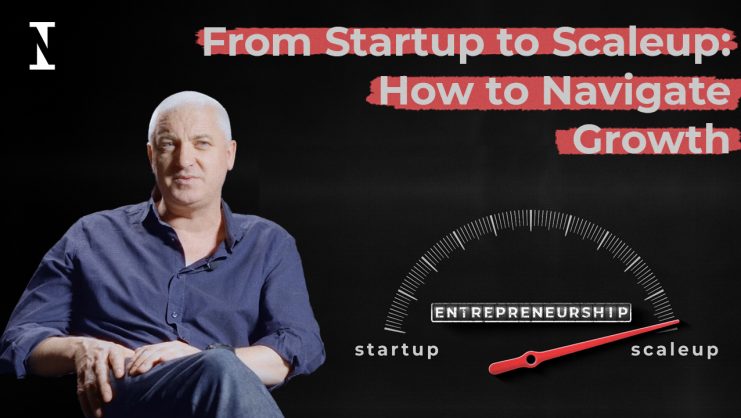Entrepreneurship is regarded as a pivotal pathway to development for societies worldwide. At its core, entrepreneurship represents a driving force that fuels innovation, economic growth, and social progress. Entrepreneurs, with their innovative ideas and determination, not only create jobs but also stimulate competition and productivity within markets. Particularly, MSMEs contribute up to 90% of total employment in developing countries while also fostering a culture of creativity and problem-solving, which can lead to groundbreaking solutions for pressing societal challenges like poverty, climate change, and other critical sustainable development categories.
Rewarding as it is, embarking on an entrepreneurial path requires patience, focus, and, particularly in Africa, the ability to effectively navigate the landscape of entrepreneurship training programs. In theory, entrepreneurship programs are structured so that innovative ideas make their way through a development pipeline, beginning at ideation, going through investment stages, and eventually maturing. In practice there are many programs available which support the development of different skills, knowledge, and networks.
Entrepreneurship education in Africa is especially chaotic because the growth path for African entrepreneurs is not as seamless as the theoretical growth pipeline. Young ventures have great difficulty in attracting financing and customers. Adding to this challenge is that many entrepreneurs are not equipped with the administrative skills necessary to run a business. Business knowledge is, of course, critical to the development of sustainable businesses in Africa. According to reports, African countries experienced 60-80% startup failure within a space of 10 years, unlike the US, China or India.
Many entrepreneurs prioritize funding above knowledge and networks. This might be quite understandable as access to finance is commonly the problem with startups in Africa. However, a recent report attributed the decline for startup funding in 2023 to business model viability, among other issues. Essentially, knowledge brings money at the end of the day. With the identified problem of funding, many entrepreneurship programs introduce prizes to stimulate commitment of the participants. The intention behind these prizes is to promote inclusivity and also motivate learning. However, while these prizes can be enticing and with good intention, they rarely reflect the size of the investment needs that the participants need in order to start or scale their business.
Entrepreneurs must therefore have some sort of rethink, a realignment of focus. To attract the right forms of financing, the objectives for entering any program must be clear. What do I want to learn? What position will my business take after completing this program? These self-assessment questions bring needed clarity. Essentially, entrepreneurship programs are great platforms to build administrative capacity and the right form of knowledge to attract investment. After all, investors are more cautious these days and while they are willing to invest, they are looking for some proof that the business is sustainable. Often, this sustainability depends on the knowledge of the business administrator.
From my experience interacting with entrepreneurs, a solution is to critically assess one’s business as an entrepreneur and strategically choose from a couple of programs available rather than jump head over heels in search of the funding often attached to these programs. While it is important for entrepreneurship programs to be transparent about what they can deliver with regards to helping entrepreneurs build the capacity and network of their emerging business, especially because entrepreneurs participate in these programs throughout all stages of scale, entrepreneurs also need to appreciate how important managerial knowledge and business delivery is while also being strategic about selecting which programs to apply to.
Knowledge that can help with time-saving and confidence building is the greatest prize an entrepreneurship program can offer.
Boluwatife Arewa, co-founder of Scrapays Technologies, a growth-stage waste management application based in Lagos, has participated in multiple entrepreneurship programs since the company was founded in 2019. He opines that while each program did support the company’s growth, he realized the importance of ensuring that the team and the business were at the right stage to participate in any specific program. He suggests that entrepreneurs be picky with the programs available. According to Arewa, “you can’t be an ideation stage business and expect to get meaningful benefits from an accelerator program.”
To Arewa’s point, because entrepreneurship programs differ from degree programs in terms of the likelihood of a single program to transform business potential: ultimately, it is very difficult to develop a program that can serve the development of a start-up from its ideation to growth stage and exposure to different markets, partners, and investor types.
Secondly, it underlines the need for start-up founders to be both self-aware and selective of the way they choose to apply for entrepreneurship programs. The clearer an entrepreneur is about their development stage and what they need for their business to develop, the easier it is to determine whether it is worthwhile to invest in applying and participating in a program.
However, responsibility should not fall solely on the entrepreneur. Because there is such a confusing web of entrepreneurship programs on the market, it is important they are well sign-posted, with clear guidelines and advice about the growth opportunities for young businesses. While cash awards may be an added benefit, knowledge that can help with time-saving and confidence building is the greatest prize an entrepreneurship program can offer.
In conclusion, without a concerted focus on equipping aspiring entrepreneurs with the skills and knowledge needed to navigate the complex terrain of business management, these programs may fall short of their intended impact. It is imperative that Africa’s entrepreneurial ecosystem shifts its emphasis towards fostering not only innovation but also building strong managerial acumen. This transition demands a holistic approach that bridges the gap between entrepreneurial enthusiasm and sustainable business practices. By investing in comprehensive training, mentorship, and resources geared toward managerial competence, Africa can unlock the true potential of its burgeoning entrepreneurial spirit. With such a shift in perspective, African entrepreneurs can not only dream big but also manage effectively, ensuring that their ventures thrive and contribute significantly to the continent’s prosperity. In this way, Africa’s entrepreneurs can transform the challenges of today into the successes of tomorrow.
© IE Insights.











